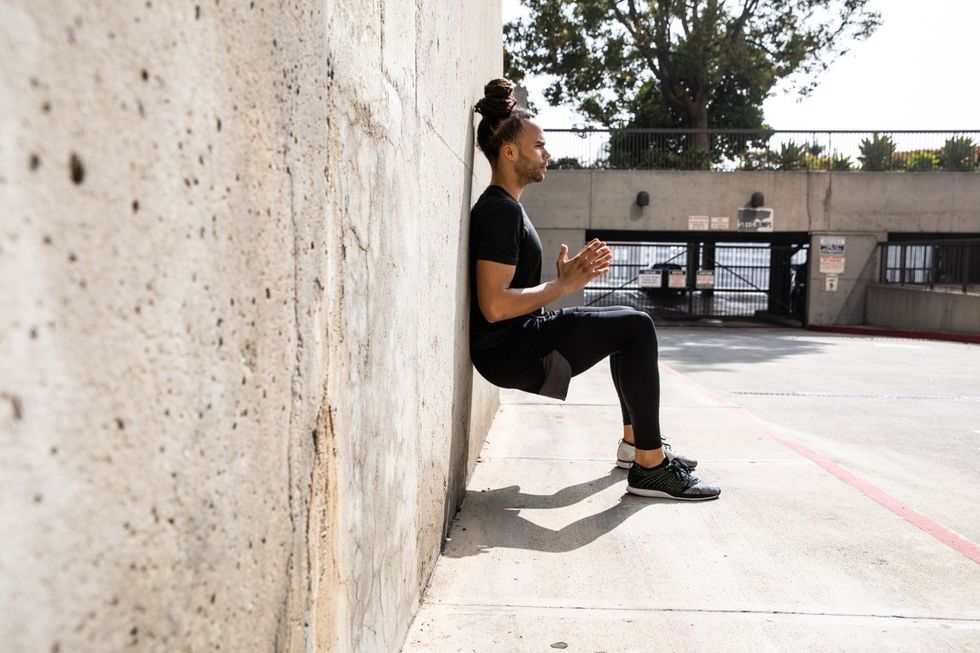As a Balanced Body Educator, Certified Personal Trainer, and Integrated Movement Specialist, I’ve spent the last 28 years dedicated to helping people transform their lives through fitness and wellness. My journey in the health and fitness industry has taken me around the world, training clients and educating fellow trainers at global fitness conferences. My approach is rooted in the belief that personal health requires a global perspective, one that integrates a variety of modalities to create a well-rounded and sustainable fitness routine.
In this story, I want to share with you the power and effectiveness of home workouts that require no equipment. Over the years, I’ve seen firsthand how foundational movements can not only improve physical fitness but also enhance our daily lives by supporting Activities of Daily Living (ADLs) like walking, standing, and lifting. Whether you’re new to fitness or a seasoned athlete, these exercises are designed to be accessible, effective, and adaptable to any fitness level.
Join me as I guide you through these tried-and-true exercises, which have stood the test of time. They will help you build strength, improve mobility, and achieve your fitness goals—all from the comfort of your home.
RELATED: How to Get Abs, According to Fitness Experts
Wall Squats
iStock
Find a clear, supportive wall. Stand against the wall and walk your feet forward so you can slide your body down into a squat position. With your upper body and hips against the wall and your legs in a squat position with about 90 degrees of bend at the knees, begin by holding for 30 seconds and do 3 sets. Build up to 60 seconds for each set.
Functional Squats

Stand with your knees and toes facing forward and legs under your hips. Squat as if you are going to sit on a chair behind you, hinging at your hips, allowing your upper body to lean forward, bending the knees. Return to stand.
Walking Forward Lunge Knee Lift

Begin standing. Lift your right knee up to hip height and step forward, landing the right foot in front of the body and bending both knees into a lunge. From this position, stand and lift the left knee in front of the body. Repeat the sequence alternating lead legs, ideally doing 5 on each leg. Repeat for 3 sets.
Walk The Plank

Start standing. Roll down to the floor until your hands touch it. Walk your hands forward on the floor until your body gets to the plank position. Pause for 2 seconds and return to standing by walking hands back towards your feet, piking your hips up, and rolling up.
Reverse Tabletop Plank

Start seated on the floor, knees bent, feet flat on floor and hands slightly behind the body and pushing into the floor for support. Push into the floor with hands and feet and press hips off floor into a tabletop position. Return to start. 10 reps, 3 sets.
Side Elbow Plank Hip Dips
Shutterstock
Begin in the side plank position with the bottom elbow bent, weight on the forearm. Keep a straight line of the body then allow the hip to dip toward the floor and back up to side plank. 10 reps on each side 3 sets.
Crawl to Stand

Start on your hands and knees. Step forward with one foot and assume the proposal position where you are kneeling on one knee and one foot is on the floor in front of you. Lean forward, push front foot into floor and stand up bringing both feet together. Reverse the movement to return to hands and knees on floor. 5 reps all on one leg, then on the other. 3 sets.
Hip Lifts
Shutterstock
Start on the floor on your back, knees bent and feet flat on floor. Press feet and arms into the floor and lift the hips off the floor. Return slowly to floor. 10 reps, 3 sets.
Lateral Lunges

Start standing. Take a big step to the right and squat into the right leg, left leg is long and straight. Return to start position. Alternate sides. 5 to each side. 3 sets.
Avoiding Common Home Workout Mistakes

Usually, people rush through exercises, which could diminish good form. Bad form might cause injury during movement. Always try to find your best posture and form during exercises. Speed is not the key for these movements. Slow and controlled does a body good. Quality over quantity—if form goes downhill, it is okay to do fewer reps until you build strength and endurance.
Starting Safely for Beginners

Start with fewer reps and sets. I highly recommend a virtual private session with a trained, certified trainer. They will be able to give you feedback on proper form. Also, always, always, always start with a thorough warm-up—a light warm-up that brings your body temperature up and moves all your major muscles. This will help you have a successful and safer workout.
Tracking Progress and Staying Motivated

I like using wearables such as the Apple Watch or you can start with a simple piece of paper and log the following: Date, Activity, exercises, reps, sets and total time. You can be as detailed or not as you want.



